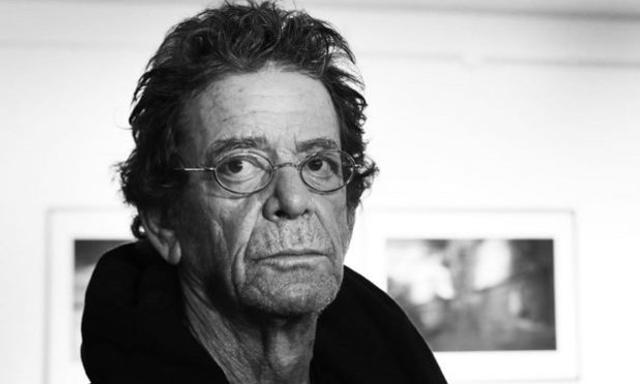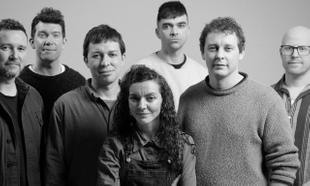"One chord is fine, two chords are pushing it. Three chords and you're into jazz." - Lou Reed
We tend to imagine that our idols are indestructible, resistant to the ravages of time and the slow and steady decline that sets in as the years roll by. We hold them in memory, picture perfect, raging with the youth and vitality that first drew us into their orbit. And so for a whole generation of music fans, the news of the sad passing of Lou Reed at the age of 71 felt like a cold, sharp slap to the face, a timely reminder that greatness confers no guarantee of immortality, and eventually, the music will fade away and die for all of us.
Genius is a word often bandied about a little too freely when eulogising dead rock stars - in the case of Lou Reed, it seemed too small a word to encapsulate his talent. He was the original street poet, unflinching in his portrayal of the seedy underbelly of life and uncompromising in his approach to making music.
With the Velvet Underground, he dropped a grenade into the Summer of Love - blasting the cosy psychedelia of the late sixties to pieces with a debut album that moved from tender to terrifying with seamless ease. The Velvet Underground & Nico (1967) remains a landmark record, and is arguably the most influential rock album of all time. While the Beatles and the Stones cloaked their references to drug-taking in layers of ambiguity, Reed cast a cold, dispassionate eye on the junkie experience - on the face of it, ‘Heroin’ is a song that sounds dangerously like glamourisation. Dig deeper and it becomes clear it was just Lou Reed telling it like it was; honest, direct, no bullshit. Nobody was listening. Nobody cared. Album sales were poor but instead of watering things down, the band pushed a little harder, went to further extremes.
White Light, White Heat (1968) sounded like nothing else on earth - a rush of noise, a collision of ideas, a band bubbling up nicely, simmering with intent. They were making music on the margins while falling apart at the seams - Nico had departed, and Reed and John Cale were on the edge. The third album, simply entitled The Velvet Underground (1969) was a complete change of attack, an album of pure, almost spiritual beauty. Songs like 'Candy Says', 'Jesus' and 'Pale Blue Eyes' demonstrated Reed's other side, his ability to write songs of awe inspiring simplicity. By now, Reed was already eyeing a life away from the commercial failure that was the Velvet Underground; it was only a matter of time before had he left the band in a cloud of rancour and bitterness to pursue a solo career.

Throughout the seventies, Lou Reed cut his own unique path - Transformer (1972) provided him with the commercial hit that had eluded him with the Velvet Underground, offering up his two most celebrated songs, ‘Walk on the Wild Side’ and ‘Perfect Day’ but rather than consolidate this commercial success, he followed it up with Berlin (1973), an album that dredged up some familiar, less chart friendly themes - drug addiction, suicide and domestic abuse. Berlin has often been described as ‘the most depressing album of all time’, a trite summary of a record that is one of the finest in his illustrious back catalogue. If Berlin acted as something of a stop sign on the route to stardom, Metal Machine Music (1975) looked like complete career suicide - a double album of unstructured white noise, a barely listenable to assault on the senses that tested the patience of even his most fervent admirers.
This was Reed at his most truculent - a two fingered gesture to his record label and by extension, the music business in general. By now, he was gaining a reputation as difficult, surly, recalcitrant but the truth was more prosaic -he didn’t suffer fools gladly and he worked in an industry where there was an over abundance of cretins and charlatans.
For the next decade, he continued to write and record music but there was a general feeling that his best days were behind him as he stubbornly refused to fall in line with the fads and fashions of the eighties. That all changed with the release of New York in 1989, an album that drew huge acclaim and saw a massive renewal of interest in his music. New York was classic Lou Reed - a concept album of sorts, a wonderfully descriptive journey through the city of his birth, exposing the good, the bad and the ugly of that great metropolis. He now entered one of the most creative phases of his solo career - Songs for Drella saw him reunite with John Cale in 1990 for a touching tribute to Andy Warhol while Magic and Loss in 1992 was a beautiful if somewhat gloomy meditation on death inspired by the loss of two close friends.
Meanwhile the clamour for the Velvet Underground to reform was growing as a whole new generation of music fans discovered their music. The reunion once thought impossible happened -
a sold out tour of Europe briefly offered a glimmer of hope that the reunion might lead to something more permanent, but old animosities between Reed and Cale resurfaced and buried any hope of further recordings, and the band went their separate ways. Set The Twilight Reeling (1996) and Ecstasy (2000) had their moments of magic, but the turn of the millennium marked a definite slowdown in his recorded output and it wasn’t until his surprise collaboration with Metallica in 2011 on the album Lulu that we got to see him back doing what he did best - polarising opinions, inciting awe and disgust in equal measure. Reed described Lulu as the best thing he had ever done - Metallica fans hated it with a passion. Music critics were divided as to the merits of such an apparently ill matched collaboration, but it seems somehow appropriate that Reed’s last record saw him return to where he started - confronting us, challenging us, making music that defied expectations.
When Lou Reed’s battle with the health problems that had dogged him for most of the last decade ended on the 27 October, it felt like something more than the death of a music legend.
His real impact cannot be measured in record sales or by the sincerity of the countless heartfelt and emotional tributes that have poured in since his untimely death. Right now, somewhere around the world, there is a kid with a guitar playing along to the classic opening riff of 'Sweet Jane', mouthing the words:
"Standing on the corner, suitcase in my hand
Jack is in his corset, Jane is in her vest
And me, I'm in a rock'n'roll band…"
He is just one of the countless many who have been inspired to pick up a guitar by the words and music of Lewis Allan Reed, to dare to dream of a life saved by rock and roll. That was his real impact, his gift to us; immeasurable, priceless.
Story by Paul Page
Main image: Hannelone Foerster/Getty
Second image










































































